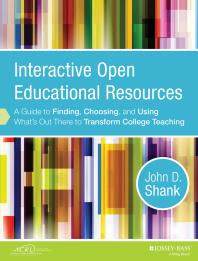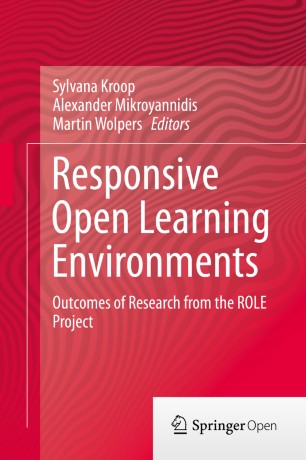
OER Materials are adaptable, free to use and to share:
Most OER materials come with a Creative Commons License that allows for copy, distribution and even adaptation of work free of cost. For more information see Copyright and OER.
Lower educational costs:
One of the main reasons a student may drop out of college is cost. While MSSU has already taken steps to aid in this area, rental textbooks and buyback programs, more is still possible. Decreasing the weight of costs can aid in improving graduation and retention rates.
Materials are easily accessible:
Located online, materials are easy for distance and non-distance learning students to find. Materials can be linked in Blackboard.
Materials are reviewed by your peers:
Many OER resources, due to growing popularity, have been reviewed by professionals in your field, or are being used at other institutions.
More choices in materials:
OER materials can, in some cases, replace textbooks, but they can also act as supplemental material. They are versatile and can help you save time and money by allowing simply adapting already existing materials.
Defining the "Open" in Open Content
and Open Educational Resources
The terms "open content" and "open educational resources" describe any copyrightable work (traditionally excluding software, which is described by other terms like "open source") that is licensed in a manner that provides users with free and perpetual permission to engage in the 5R activities:
1. Retain - the right to make, own, and control copies of the content (e.g., download, duplicate, store, and manage)
2. Reuse - the right to use the content in a wide range of ways (e.g., in a class, in a study group, on a website, in a video)
3. Revise - the right to adapt, adjust, modify, or alter the content itself (e.g., translate the content into another language)
4. Remix - the right to combine the original or revised content with other material to create something new (e.g., incorporate the content into a mashup)
5. Redistribute - the right to share copies of the original content, your revisions, or your remixes with others (e.g., give a copy of the content to a friend)
This material was created by David Wiley and published freely under a Creative Commons Attribution 4.0 license at http://opencontent.org/definition/.
MSSU OER webpage here!
Develop and use Open Educational Resources (OER), achieving at least a 30% adoption rate of subscription and/or free academic learning materials in classes by 2023.
The MSSU 2018 – 2019 Strategic Strategy sub goal (2.c) initiative seeks to facilitate training that will enable faculty and staff to create courses that adopt high quality and affordable academic learning materials by replacing proprietary textbooks with Open Educational Resources (OER). Over the next five years the Open Educational Resource (OER) committee will lay the groundwork to achieve the institution wide strategic sub goal of implementing these resources with at least a 30% adoption rate across campus.
The committee met on January 25, 2019 to discuss how our campus will define Open Educational Resources so that we will be able to measure achievement of the stated sub goal (2.c) in 2023. The baseline for achievement will be based on courses using Open Educational Resources and the cost savings initiative below will be measured beginning in the spring semester 2019. The following definitions were developed by the committee:
Subscription material - Educational Resources
To support the mission of the Missouri Southern State University and the educational needs of its constituents, Spiva Library provides various resources and services to meet the teaching, learning, and research needs of its faculty and students.
The library holds over one million materials, including print books, journals, e-books, e-journals, databases, multi-media, and microforms. Being part of the Federal Depository Library Program since 1967, the library acquires and provides access to government documents in a variety of formats. The Archives and Special Collections Department houses university archival materials and several renowned collections: Congressional papers of Gene Taylor; the papers of Dr. Arrell Gibson, a noted Western historian; and physical and digitized Tri-State mining maps and drill logs.
As a MOBIUS library consortium member for decades, Spiva Library provides its patrons with resources owned by over 70 academic, public, and special libraries in Missouri, Oklahoma, Iowa, Colorado, Wyoming, Kansas and Texas. The library also provides and maintains multiple search engines for patrons to discover and access a wide variety of library resources through EDS (the discovery tool), SWAN (the library catalog), and MOBIUS (the consortium catalog), Journals/e-Books Finder, A-Z Database List, and OverDrive (a new MOBIUS audio and e-book platform).
Many of the proprietary resources, subscribed by Spiva Library, are freely available to MSSU faculty, students, and staff only. These library resources serve as supplementary and educational materials for instructors and students. They are instrumental in the development and deployment of courses that use Educational Resources as a cost-saving initiative for our students.
The MSSU Library and Distance Learning Department will provide technical and resource assistance to help faculty and staff re-design courses using the above avenues as they adopt approaches to improve teaching and learning. This committee also recognizes the value of this endeavor as it contributes to student satisfaction and is a serious cost-saving initiative to aide each student as they embark on their academic endeavors at MSSU.
 Interactive Open Educational Resources by John D. Shank
Interactive Open Educational Resources by John D. Shank Responsive Open Learning Environments by Sylvana Kroop (Editor); Alexander Mikroyannidis (Editor); Martin Wolpers (Editor)
Responsive Open Learning Environments by Sylvana Kroop (Editor); Alexander Mikroyannidis (Editor); Martin Wolpers (Editor)This site is maintained by the librarians of George A. Spiva Library.
If you have a question or comment about the Library's LibGuides, please contact the site administrator.